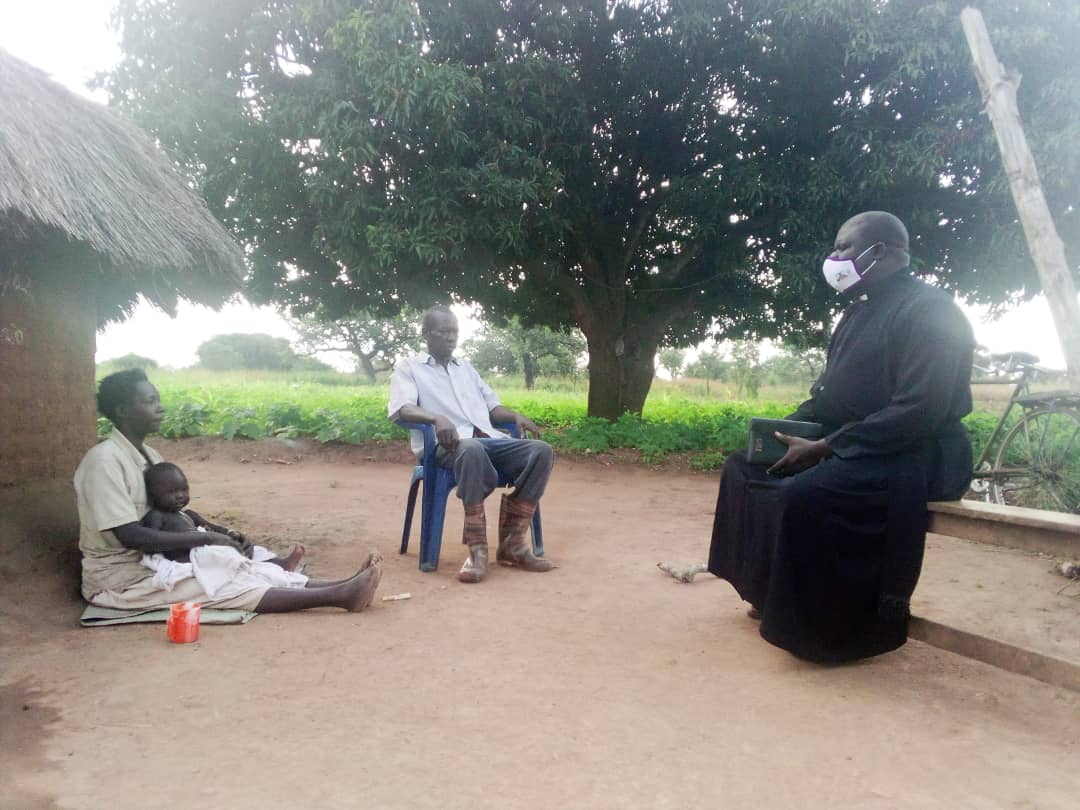PMI works with a wide range of partners including faith-based organizations for desired health outcomes
| In Northern Uganda’s Otuke District, faith leaders are heeding the call to fight malaria. Reverend (Rev.) Jimmy Max Ajon of St. Paul’s Church of Uganda is committed to ensuring that no woman, child or community member loses his or her life to malaria amidst the COVID-19 pandemic and lockdown challenges. In response to pockets of resistance to indoor residual spraying (IRS) among some communities in Otuke District and other regions, the United States President’s Malaria Initiative (PMI) VectorLink Project in Uganda has engaged religious leaders to improve acceptance of IRS and other malaria control interventions, such as the use of insecticide-treated mosquito nets (ITNs).
Malaria is still the leading cause of morbidity in Uganda and is responsible for most outpatient visits, hospital admissions and deaths. The PMI VectorLink Project, in collaboration with the Ministry of Health’s (MOH) National Malaria Control Division, conducts IRS in 16 districts in Uganda. Recognizing that religious leaders have the potential to promote and sustain positive change in the community through their well-established outreach and community programs, the project organized community dialogues and sensitization meetings with key religious, cultural and opinion leaders. The project trained the leaders on the benefits of IRS and ITNs, community mobilization and advocacy techniques, and also enlisted their support in promoting IRS and supervising its implementation in their respective communities.
Rev. Ajon shared what he learned with his fellow parish priests and a total of 102 faith leaders, who subsequently promoted lifesaving integrated malaria messages and COVID-19 prevention measures. He and other local leaders joined the project supervision teams to mobilize, monitor and supervise the spray activities in various sites in Otuke District. Rev. Ajon also participated in scheduled radio talk shows and called upon every community member to open their house for spraying and support the spray teams in controlling malaria. Through door-to-door mobilization, he personally reached out to communities, particularly those individuals who were resisting IRS, successfully convincing them to allow their houses to be sprayed.
“Before IRS was introduced, many community members, including my family used to frequently visit the health facilities due to malaria. Now the malaria episodes have reduced in my household,” he said. “Many communities in Otuke have directly benefited from the intervention, and there is a reduction in the numbers of people who line up at the health facilities.” The project noted increased IRS acceptance in the communities with the demand for IRS greatly increased as well, thanks to the involvement of religious and community leaders like Rev. Ajon. For example, in Otuke District, the project surpassed the spray target by 12% and protected 20,000 more people than planned with no cases of COVID-19 transmission reported during the campaign. The project protected approximately 5 million people from malaria overall. Rev. Ajon has pledged to continue speaking at funerals, church services and other faith community outreach meetings about the benefits of spraying houses and sleeping under mosquito nets to ensure that the burden of malaria is drastically reduced. He also pledged to remind communities to go to the health centres for testing and treatment if they have signs and symptoms of malaria and also participate in clearing any stagnant pools of water in order to eradicate malaria out of Otuke District.
|


